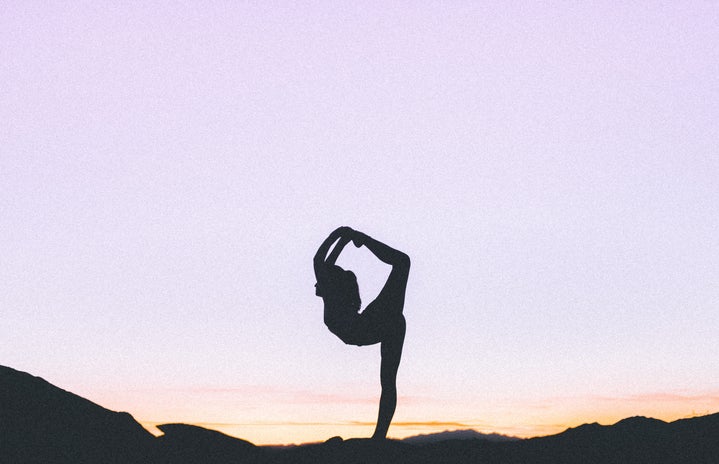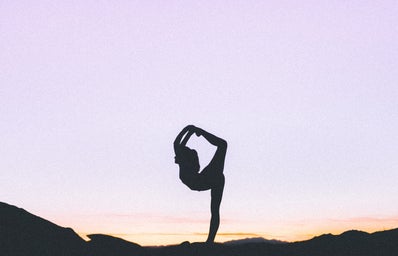As NYU students, we know, with absolute certainty, that New York City is truly “the city that never sleeps.” Between bright lights, noisy neighbors, and siren sounds, falling asleep and staying in a restful slumber is a challenge almost every night. To make matters worse, a particularly stressful school day can make it even harder to drift off to sleep: as we wind down for bed, our minds begin to race at a million miles per minute, trying to process everything that happened during our day.
However, we busy college gals desperately need at least six to seven hours of beauty sleep each night in order to feel our best and tackle our to-do lists. Luckily, there are many easy, simple tips and tricks that you can take advantage of to help you fall asleep in seconds.
Aromatherapy and Essential Oils
A terrific way to bring your mind into a peaceful state and prepare you for a recharging night of sleep is to inhale a calming aroma. Consider purchasing an essential oil diffuser or candle with a lavender scent. Lavender has been proven to lower blood pressure and relax nerves, which is perfect if you are struggling to fall asleep. In fact, a study conducted by Wesleyan University in 2005 showed that people who inhaled lavender before bed increased their amount of deep sleep, and it made them feel more energized upon waking.
You can also purchase an aromatherapy spray designed specifically for your pillow. This Works Deep Sleep Pillow Spray contains a blend of lavender, vetivert, and wild chamomile to not only help you fall asleep quickly, but also make you feel more refreshed when you rise in the morning. All you need is a few spritzes of this life-changing product on and around your pillow immediately before bedtime, and you will be swiftly transported into a calm state of mind.
If you also struggle with congestion and allergies, try Origins’ Sensory Therapy Peace of Mind, which delivers immediate stress relief. Apply a very tiny amount, less than the size of a pea, to the back of your neck, temples, and earlobes about fifteen minutes before bedtime. You may experience a slight tingling and cooling sensation from the peppermint and eucalyptus, but these powerful herbs will quickly melt away any tension, stress, and sinus pressure. Our nightstands would not be complete without this essential product.
Set a Schedule
Try to go to bed and wake up at the same time every day. If you want to go the extra mile, you can also create a nighttime routine and follow it each night before your scheduled bedtime. This will give your body cues that it is time to fall asleep soon, thereby making it easier to actually fall asleep when you are ready to.
Any changes in your sleep schedule, like staying up super late to finish a paper or sleeping well into the afternoon hours on weekends, will disrupt your circadian rhythm (aka your body’s internal clock that regulates your “sleep” versus “wake” cycle). When your circadian rhythm is off, you will likely find yourself wide awake at 1:00am when you wish that you were snoring, or you’ll feel totally exhausted in the middle of your morning lecture. But, if you stick to your sleep schedule, it will help you regulate your circadian rhythm, meaning you can stay asleep all night long and feel energized in during the daylight hours.
Unplug
While this may be the hardest suggestion to integrate into your routine, it is arguably the most important. Be sure to switch off all your electronics at least thirty minutes before bed. Smartphones, laptops, and TVs all emit blue light, which inhibits melatonin production. Our bodies naturally secrete melatonin, a hormone that reduces alertness and signals that it is time for sleep soon, a few hours before our habitual bedtime. But, blue light prevents our bodies from releasing this hormone, which makes it challenging for us to fall asleep quickly. To not disrupt your body’s melatonin production around bedtime, try reading a book or magazine, instead of checking social media, before bed.
Write it Down
A habit that some of the most successful people share is that they make a to-do list before drifting off to sleep. Why? If you write down all the tasks that you were unable to accomplish during the day and need to do tomorrow, these thoughts won’t be swirling around in your head, preventing you from falling asleep. The result of jotting down a to-do list is a calm, relaxed mind, and the key to nodding off quickly is eliminating stress.
You can also keep a gratitude journal on your nightstand and fill it in each night before turning off the light. In it, write down three things that you are appreciative of each day. This will help to put you in a positive state, which is ideal for ensuring a restful night of beauty sleep.
White Noise
No one can deny that New York City is noisy at all hours of the day and night. Wailing sirens or neighbors making their way back from a party have inevitably, and frustratingly, woken us all up from our slumbers. In an effort to drown out these annoying sounds, invest in a white noise machine. We love this affordable, compact option, or you can try sleeping with a fan, humidifier, or air purifier turned on.
White noise helps you stay asleep all night long because it masks any loud, outside noises that have the potential to disturb your sleep. How? White noise consists of sound waves of a wide range of frequencies, so it covers up all the distracting noises in your environment.
The “4-7-8” Breathing Trick
We’ll admit that we were a bit skeptical about this trick at first, but it actually made us fall asleep in seconds. The “4-7-8” Breathing Trick works like this: breathe in through your nose for four seconds, then hold your breath for seven seconds, and lastly breathe out through your mouth for eight seconds. Try to repeat this several times without taking breaks.
Following this pattern of breathing, your heart rate will naturally slow down and your central nervous system will relax. Reducing anxiety and stress physically helps you fall asleep much faster than you usually do. In fact, we found that this breathing exercise worked especially well when we were nervous about a big test or event scheduled for the next day and couldn’t stop tossing and turning.
We hope that these tips and tricks not only make it easier for you to fall asleep quickly amidst the hustle and bustle of New York City, but also help you stay asleep all night long, so you can wake up with all the energy you need to have a fun and productive day!
Images courtesy of Pexels.



